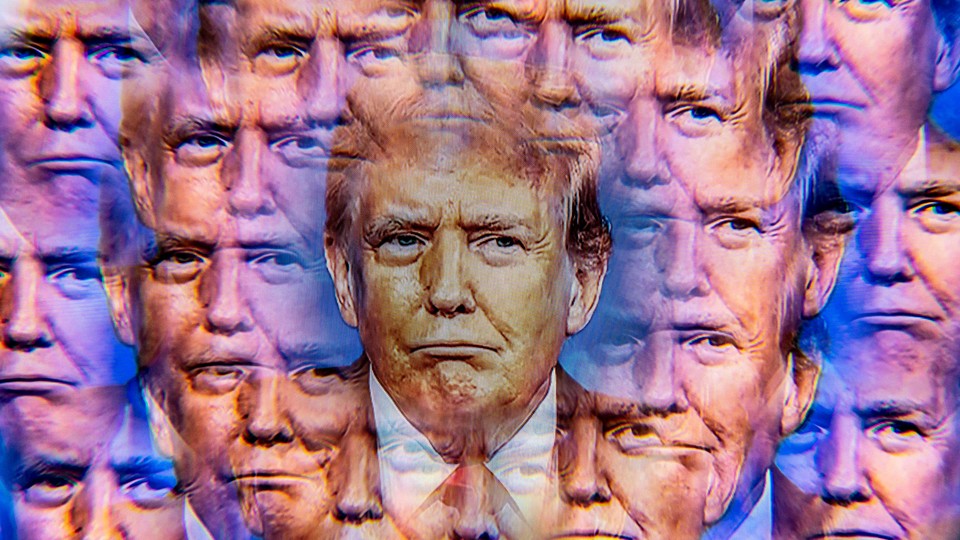An Article the Likes of Which Nobody Has Ever Seen Before
5 min read
Stop me if you’ve heard this one before. But don’t worry—nobody has, ever. Or at least, that’s what Donald Trump would say if asked about, well, anything. It’s the ex-president’s favorite locution.
“Groceries, food has gone up at levels that nobody’s ever seen before. We’ve never seen anything like it—50, 60, 70 percent,” Trump said recently. (This is not true, though if it were, it would be unlike anything seen in American history.)
He used the same phrase to speak about law and order last month: “We’re here today to talk about how we are going to stop the Kamala crime wave that is going on at levels that nobody has ever seen before.” (The country is not even at its most violent point in Trump’s life, much less ever.)
Or sometimes he uses it more generally: “Our country cannot stand another four years of what we’ve been through. Our country has been through a trauma, the likes of which we’ve never seen before.” (Not for the first time, he seems to have forgotten about the Civil War.)
Once you start looking for the phrase in Trump’s speeches and remarks, it’s everywhere. “You know what [Election Day]’s going to be called?” he told a religious group this spring. “Christian visibility day, when Christians turn out in numbers that nobody has ever seen before.” He uses a similar idiom—the exact wording does vary at times—to describe the economy as it was during his presidency (“We had the greatest economy in the history of the world. We had never done anything like it”), and as he says it will be: “We’re going to drill, baby, drill. We’re going to close our borders. We’re going to do things like nobody has ever seen before. And we’re going to make our nation’s economy be the best ever in the world.”
Unlike some of Trump’s signature tics—“bigly,” “many people are saying,” “like a dog”—this one may not immediately come off as distinctive. But when I ran nobody has ever seen before through the ProQuest database, I found that about two-thirds of the roughly 1,500 occurrences were Trump’s. Among the ones that weren’t, most were literal, sometimes even accurate, instances: archival photos of the Monkees, new paleontological finds, Steph Curry statistical anomalies.
The use and abuse of the phrase illuminates Trump’s salesman instincts. The case is not only that Trump speaks in hyperbole, though he does. He also strives for novelty, telling people that whatever thing he’s hawking is entirely new to the human experience. This comes naturally, because he sees the world in absolutes and demonstrates very little interest in learning, so he may not actually know much about relevant comparisons. In one especially notable example, Trump seemed to learn about the basics of the Constitution at the same time that he misrepresented them. “Nobody ever mentions Article II,” he said in 2019. “It gives me all those rights at a level that nobody has ever seen before.”
This is part of the formula that has worked so well for Trump; he knows a good sales technique, accuracy be damned. It demands attention—this thing is totally new—and, in a way, that novelty actually affords credibility. Trump’s political identity revolves around a willingness to say what other politicians won’t, and the exaggerated claims reinforce his image, as he’s the only one willing to say such preposterous things.
More traditional politicians tend to seek credibility by appealing to expertise or precedent. For example, here’s Kamala Harris at a rally this week: “He wants to impose what, in effect, would be a national sales tax. I call it the ‘Trump national sales tax’ on everyday products and basic necessities that would cost a typical American family—the economists have said this—almost $4,000 a year.” That’s a discrete number, and a vague but concrete source: “the economists.” That also makes it fact-checkable; PolitiFact calls it “half true” for choosing the most extreme estimates and oversimplifying. By contrast, here’s a typical Trump stump claim: “This is a movement the likes of which they’ve never seen before, maybe anywhere, but certainly in this country.” Fact-checking this is not only impossible; it’s beside the point.
One reason some of the things Trump talks about have never been seen before is that they’re bad ideas. Novelty—when that’s even the case—doesn’t necessarily mean quality. Other times the claims are simply nonsense, and they force Trump to one-up not only history but himself. “Many people are now saying that this is the worst storm/hurricane they have ever seen,” Trump tweeted in August 2017. Two weeks later, amid another storm, he wrote, “Many people are now saying that this is the worst storm/hurricane they have ever seen.” At some point, the listener becomes numb.
Similarly desensitizing are the wild-eyed predictions. “If anyone but me takes over in 2020 (I know the competition very well), there will be a Market Crash the likes of which has not been seen before! KEEP AMERICA GREAT,” he posted in 2019. By the following fall, he’d escalated the threat: “Joe Biden and the radical, socialist Democrats would immediately collapse the economy. If they got in, they would collapse it. You’ll have a crash the likes of which you’ve never seen before.” He lost the election, but none of that has happened (so far).
The failure of these hair-on-fire forecasts has naturally not chastened Trump. In February, at the Conservative Political Action Conference, he warned of new catastrophic consequences if he didn’t win in 2024. “They’ll soon have us losing World War III,” he said. “We won’t even be in World War III; we’ll be losing World War III with weapons the likes of which nobody has ever seen before.” If he wins, however, “we’re going to bring this into a golden age like never seen before.” Don’t count on seeing it then, either.



